Leadership in Action: A Transformative Experience in Bali
Embarking on my Leadership in Action (LiA) project was a transformative experience that reshaped my perspective on education, healthcare, and cultural immersion. My journey in Ubud, Bali, in collaboration with Green Lion, aimed to address gaps in health education in underfunded schools. Through this initiative, I not only imparted valuable lessons but also experienced profound personal and professional growth.
I made the decision to sign up for The Green Lion program in Ubud, Bali. The Green Lion focuses on community development and education, with a special emphasis on empowering local children through knowledge and skills. On a day-to-day basis, this meant working with schools to teach basic healthcare and hygiene practices, helping young students understand the importance of staying healthy.
When I first received an email about the central LiA projects, I was sitting in a lecture and knew I wanted to do something relating to healthcare and give back to communities with the knowledge I had gained from my degree. I had always been passionate about education and healthcare, so this opportunity felt like the perfect blend of purpose and adventure. I couldn’t quite believe it when I read the project description; it immediately captured my heart. Before arriving, I wasn’t sure what to expect, but as we began our induction, everything started falling into place.
The Green Lion team went above and beyond to ensure we were welcomed and got settled into the residence. We were about to embark on a truly transformational journey, working alongside a diverse range of people and organisations while developing our leadership skills. And fittingly, it all started with an early morning yoga session, embracing the Balinese way of life.
Once I arrived, I felt like this was going to be a great next month. The Green Lion has created a space filled with so much love and a family environment for all the volunteers. There was space for relaxing and space to plan the lessons. I felt in my element, being able to have the creative space. The early starts were something to get used to, and being woken up with noises from the ducks, as I was right next to the rice fields. The views from the accommodation were so breathtaking that I could not believe this was going to be home for the next upcoming weeks.
Project and Placement Overview
During my LiA placement, I had the privilege of working closely with Green Lion, a community-driven organisation dedicated to improving educational and health outcomes in local schools. My primary role was to design and implement a comprehensive healthcare education curriculum aimed at children aged 11-12 in underfunded schools. The curriculum focused on a range of essential health topics, including personal hygiene, nutrition, first aid, infectious diseases, and the dangers of substance abuse.
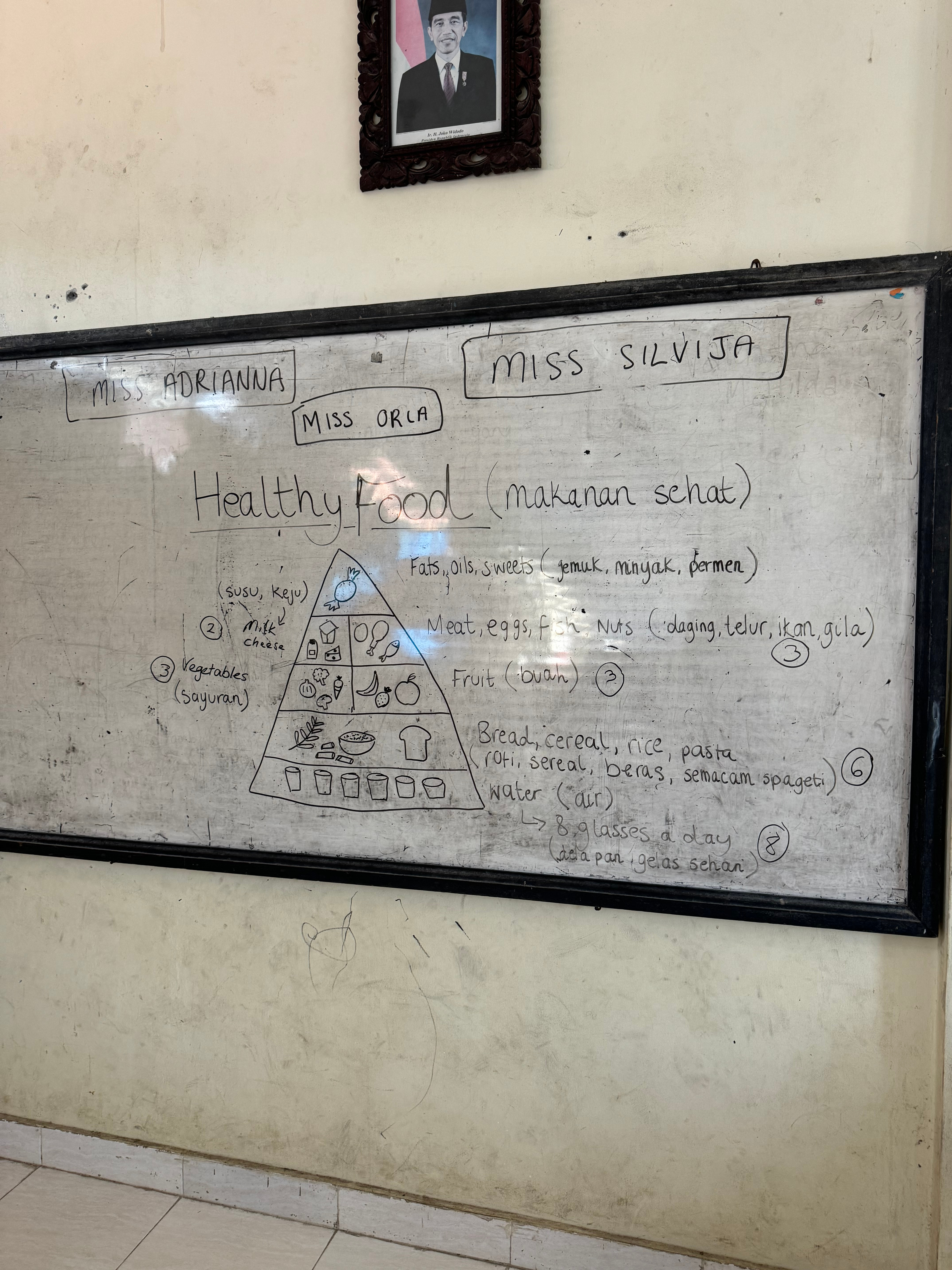
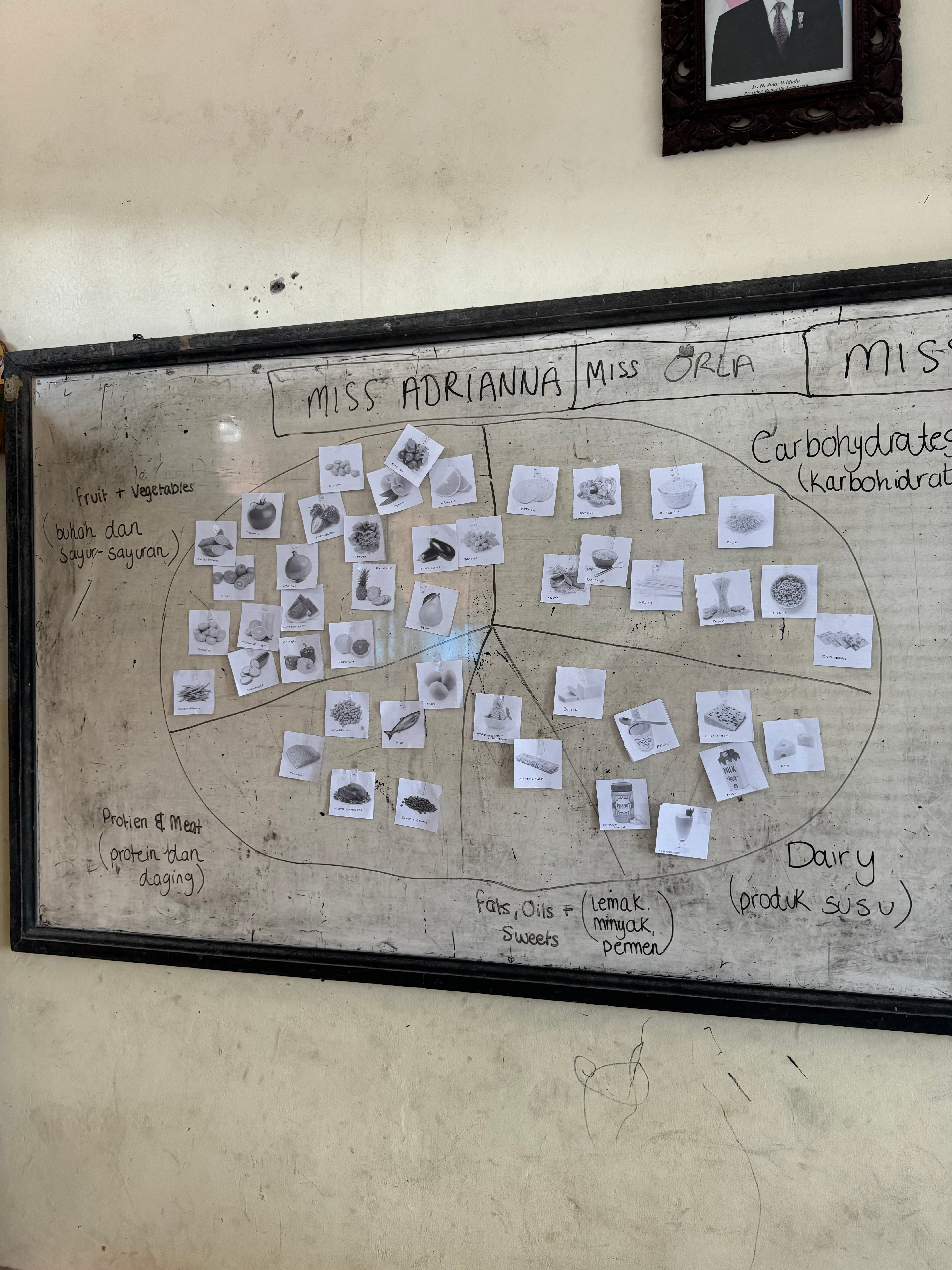
Recognising the importance of culturally relevant education, I engaged in in-depth research to tailor my lessons to the specific needs of the students. I collaborated with local educators, consulted with healthcare professionals, and conducted an analysis of prevalent health concerns in Bali. The lack of formal health education in many schools meant that these lessons were particularly impactful, as they provided children with practical knowledge that could improve their quality of life. My role extended beyond teaching; I also developed visual aids, activity sheets, and interactive exercises to ensure that students remained engaged and retained the information effectively.
The long drives to the schools could take us hours, as the schools were far, but all the things I would see on the way were always so inspiring. People making statues out of real wood and glass sculptures was so interesting. During the time at the school, at the beginning, it was hard to get engagement with the children as it was clear they did not want to be there, but with some fun activities, they always felt more engaged.
To create a sustainable impact, I also worked alongside fellow volunteers to train local teachers on how to integrate healthcare education into their existing curricula. This approach ensured that the knowledge imparted during my placement would continue to benefit students long after my departure.
Impact and Importance of the Project
The impact of the project was far-reaching, as it directly benefited students, educators, and the wider community. Health education is a fundamental yet often overlooked aspect of childhood development, particularly in underfunded schools where resources and ability in this area are limited. Through my teaching, students became more aware of how their daily habits influence their overall health. The immediate effects were evident as students started practising more rigorous handwashing, making healthier food choices, and showing greater awareness of hygiene practices that could prevent the spread of illnesses.
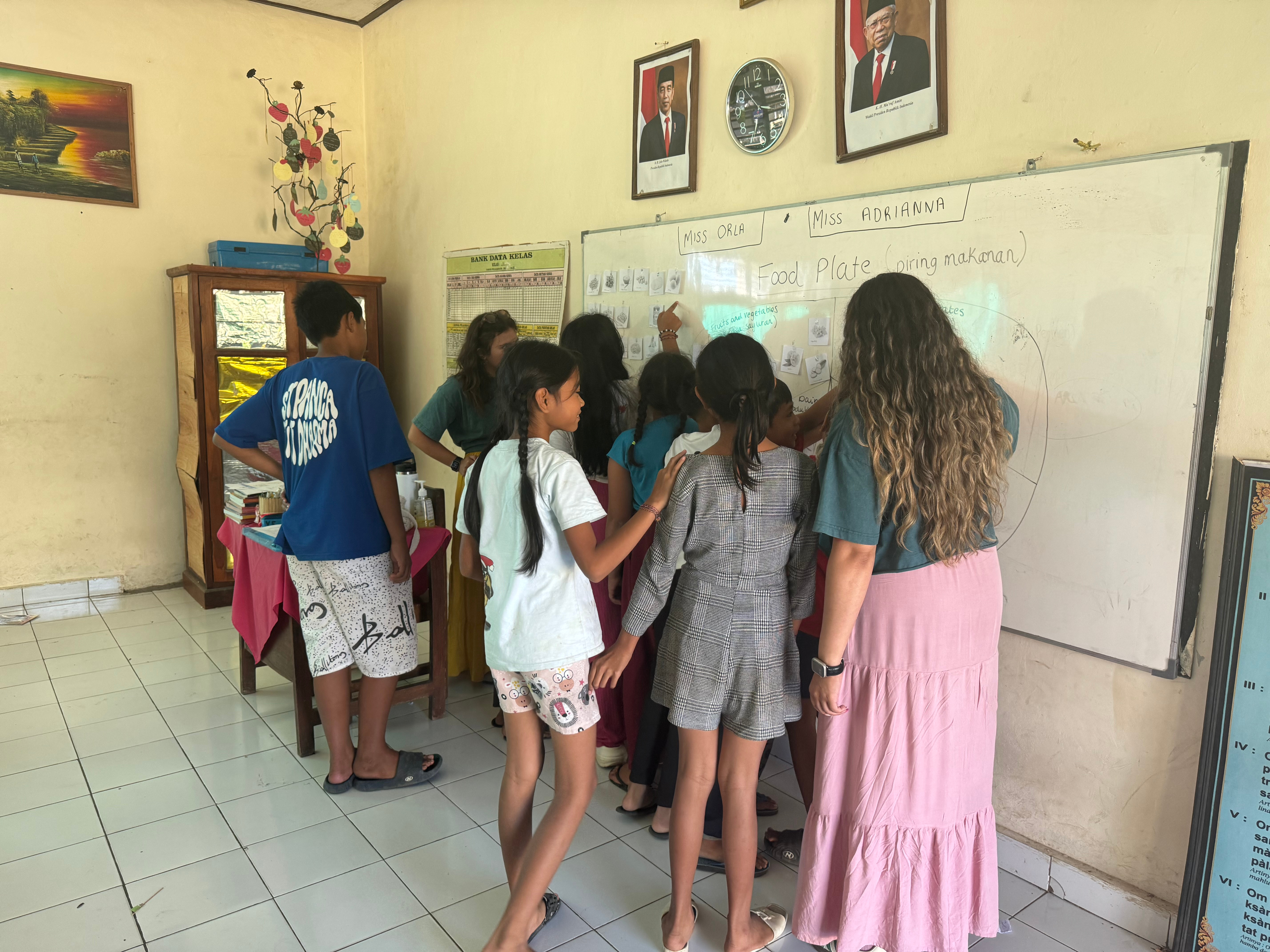
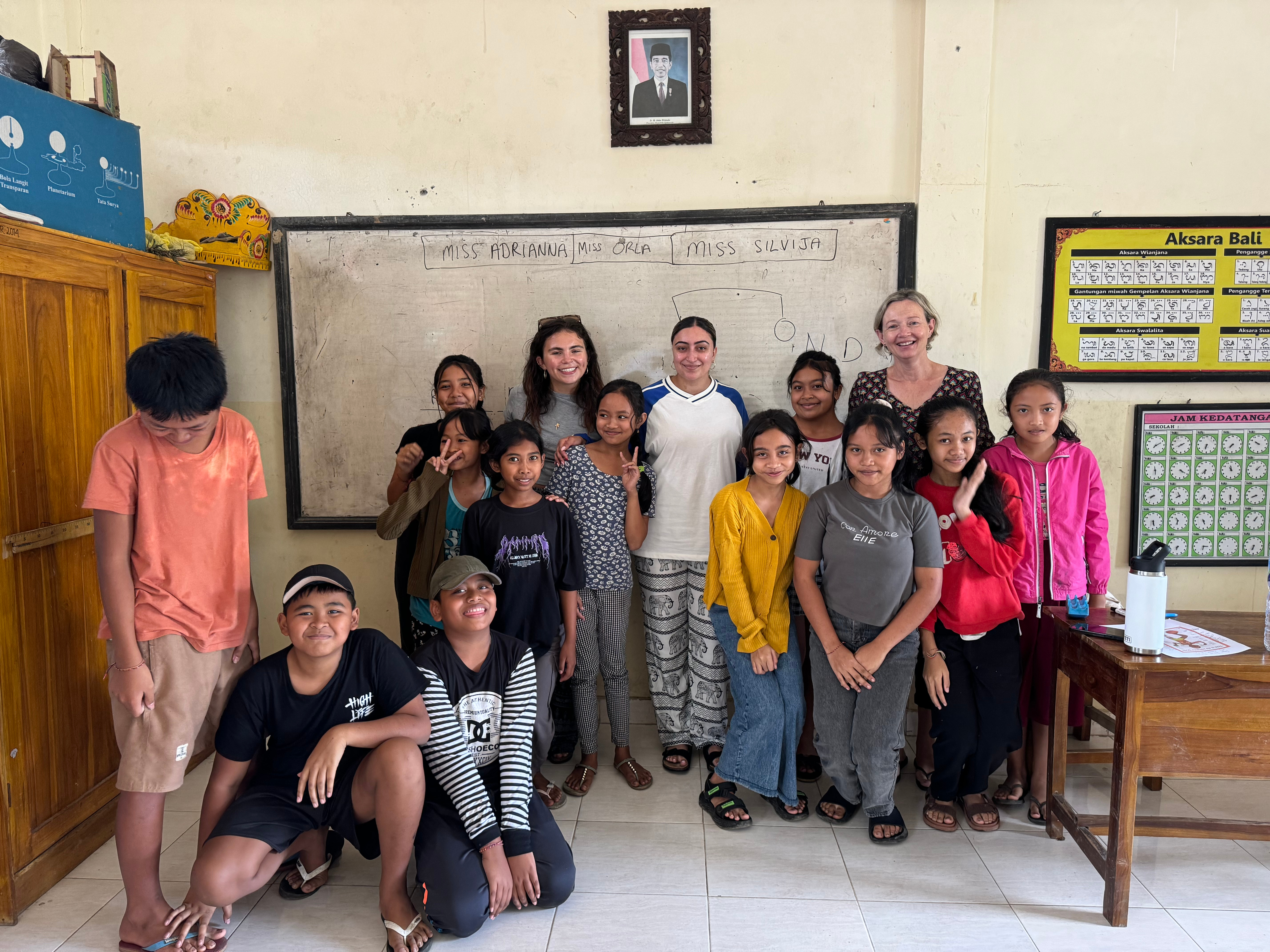
Teaching healthcare to children in unfunded schools in Ubud, Bali, presents both challenges and unique opportunities for community engagement and empowerment. Ubud, a cultural and spiritual hub located in the heart of Bali, is surrounded by rural areas where many schools face limited resources. Teaching healthcare in such environments is crucial, as it can directly impact the well-being and future of these children, especially when access to quality healthcare services is limited.
Challenges
- Lack of Resources: Many unfunded schools in Ubud may not have the necessary educational materials like textbooks, health pamphlets, or even access to proper sanitation facilities. Without these, effective health education can be difficult to deliver.
- Language and Cultural Barriers: While Bahasa Indonesia is the national language, many children in rural Balinese communities speak Balinese at home. Instruction needs to be culturally sensitive and linguistically appropriate to ensure understanding.
- Limited Access to Health Services: In rural Bali, healthcare services are often scarce or located far from the school, leading to a lack of awareness about basic health practices and preventive care.
- Economic Factors: Many families in rural areas of Ubud rely on agriculture or small-scale businesses for their livelihoods. Financial constraints can prevent families from affording essential health services, making health education even more important.
Opportunities
- Cultural Integration: Ubud is rich in traditions and local wisdom, offering an opportunity to integrate cultural practices into healthcare education. Traditional Balinese medicine, local herbs, and wellness practices can be introduced as part of a holistic health curriculum, helping children and their families relate to the information on a deeper level.
- Community Involvement: In Ubud, the strong sense of community can be leveraged to encourage local involvement in health education. By partnering with local elders, health workers, and even spiritual leaders, health messages can be delivered in ways that are more resonant and trusted.
- Low-cost Health Solutions: Teaching simple, low-cost health practices that children can easily apply, like handwashing, proper sanitation, and basic nutrition, can have a big impact. These practices can prevent many common illnesses and promote overall wellness.
- Interactive and Creative Teaching Methods: Given the resource constraints, teaching methods should focus on creativity. Using storytelling, games, songs, and art can make health education fun and memorable for children. These methods can help reinforce the importance of hygiene, nutrition, and mental well-being, making the lessons more engaging and effective.
- Use of Technology: For schools with limited funding, innovative uses of technology such as mobile health apps, educational videos, or social media platforms can bring modern healthcare education directly to students. Even simple solutions like mobile phones with health-related content can be a game-changer.
Key Focus Areas in Health Education for Ubud Schools
- Personal Hygiene: Teaching children about handwashing, dental care, and general cleanliness can drastically reduce the spread of diseases.
- Nutrition: Local agricultural practices can be used as a springboard for teaching children about healthy eating and the importance of balanced diets. With Bali's rich variety of fruits, vegetables, and locally sourced food, there’s an opportunity to teach children about nutrition in a culturally relevant way.
- Mental Health: The peaceful nature of Ubud lends itself well to conversations around mental well-being. Teaching children about emotional health, mindfulness, and stress management could promote a healthier, more holistic approach to personal development.
- Preventive Care: Health education should emphasise the importance of vaccination, avoiding harmful substances, and recognising signs of illness early to prevent the need for more expensive medical interventions later.
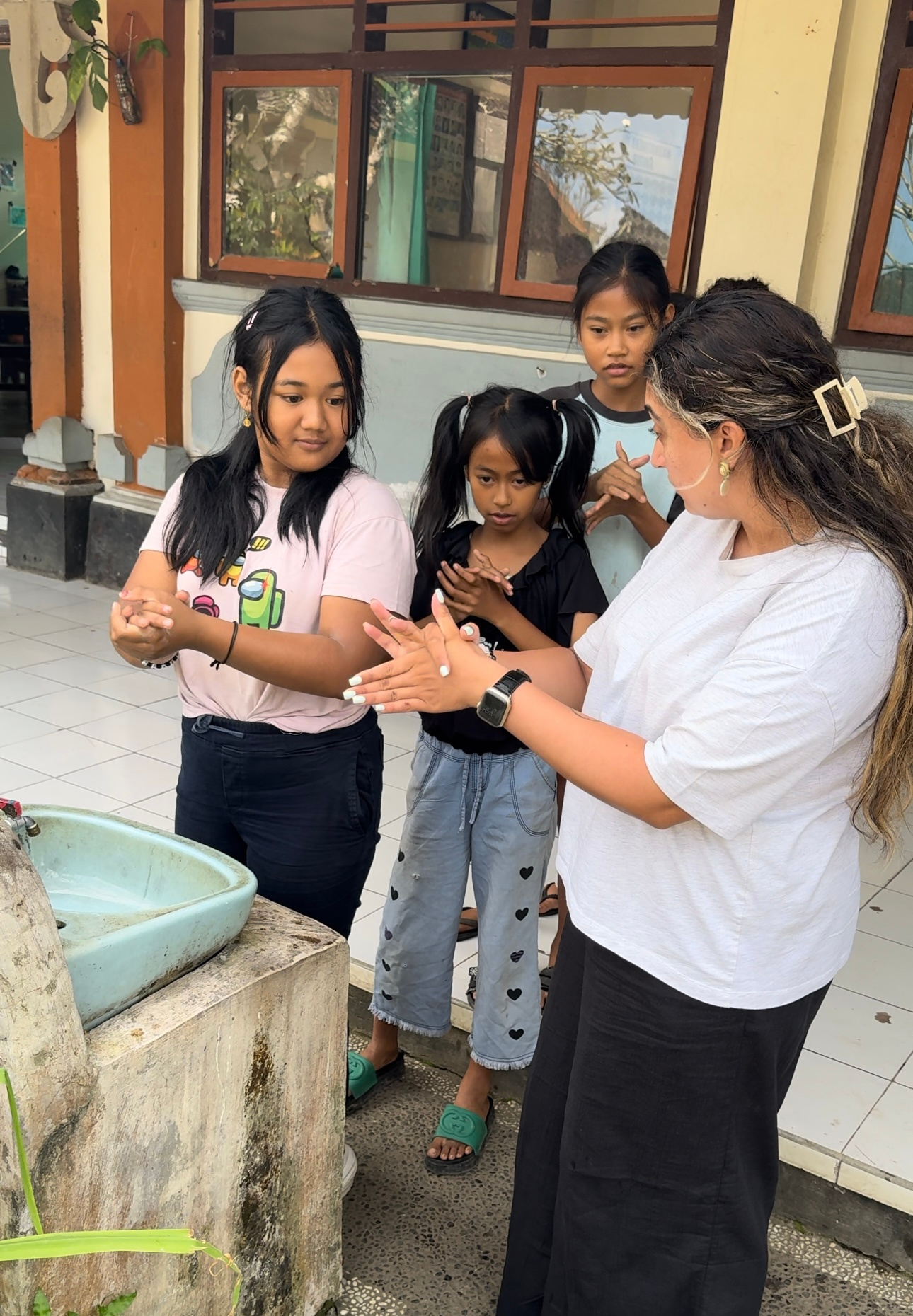
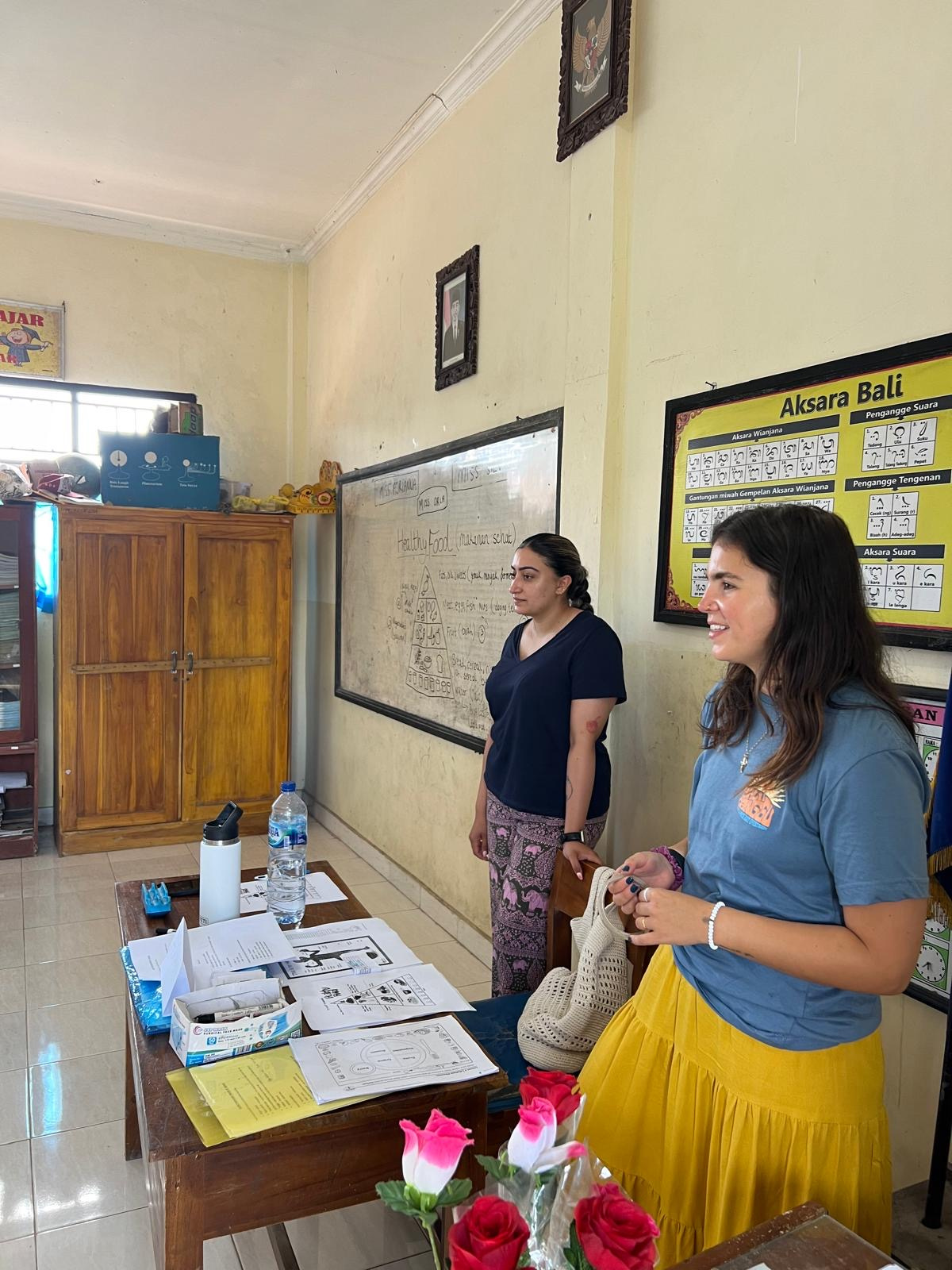
Long-term Impact
By providing healthcare education to children in unfunded schools in Ubud, there is potential to create lasting change that extends beyond the classroom. Children will carry this knowledge into their homes and communities, where they can help disseminate health practices and encourage healthier lifestyles. In the long run, these efforts could contribute to improved overall health in Ubud's rural areas and lead to greater awareness and support for better-funded healthcare services in the region.
In summary, teaching healthcare to children in unfunded schools in Ubud, Bali, may be challenging, but it is also deeply impactful. Through culturally appropriate, creative, and community-driven approaches, it’s possible to make a significant difference in the health outcomes of children, their families, and the broader community.
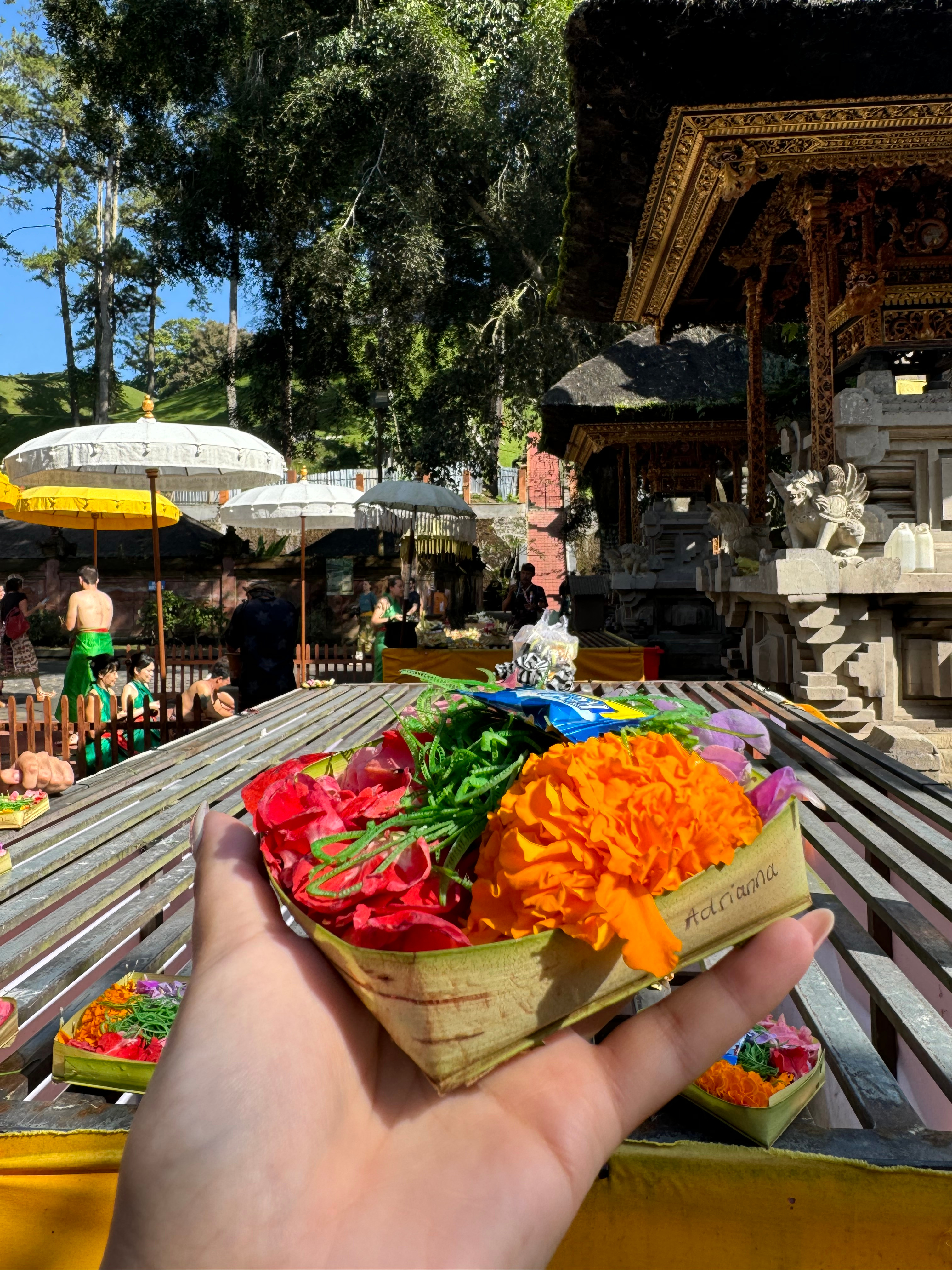
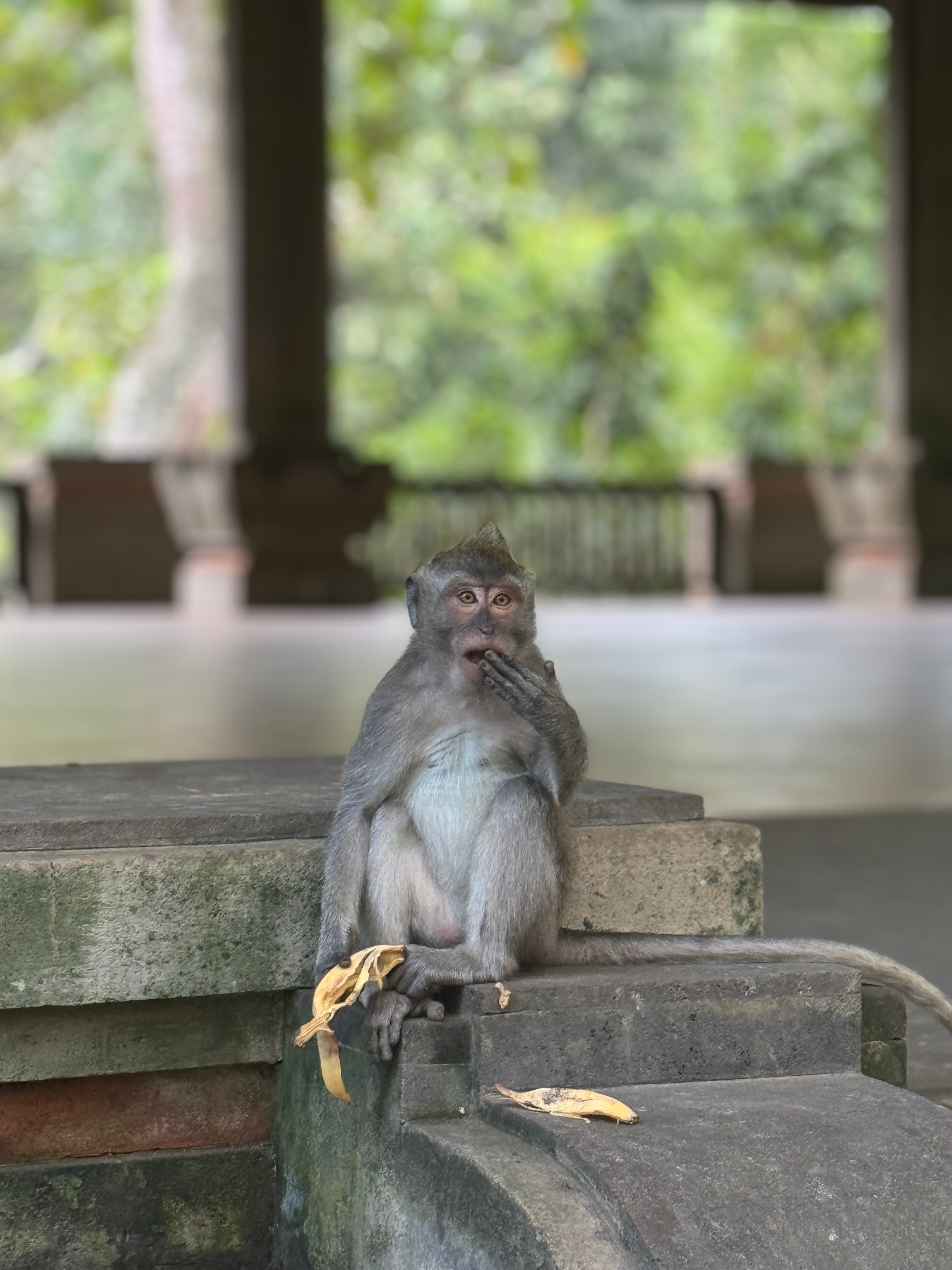
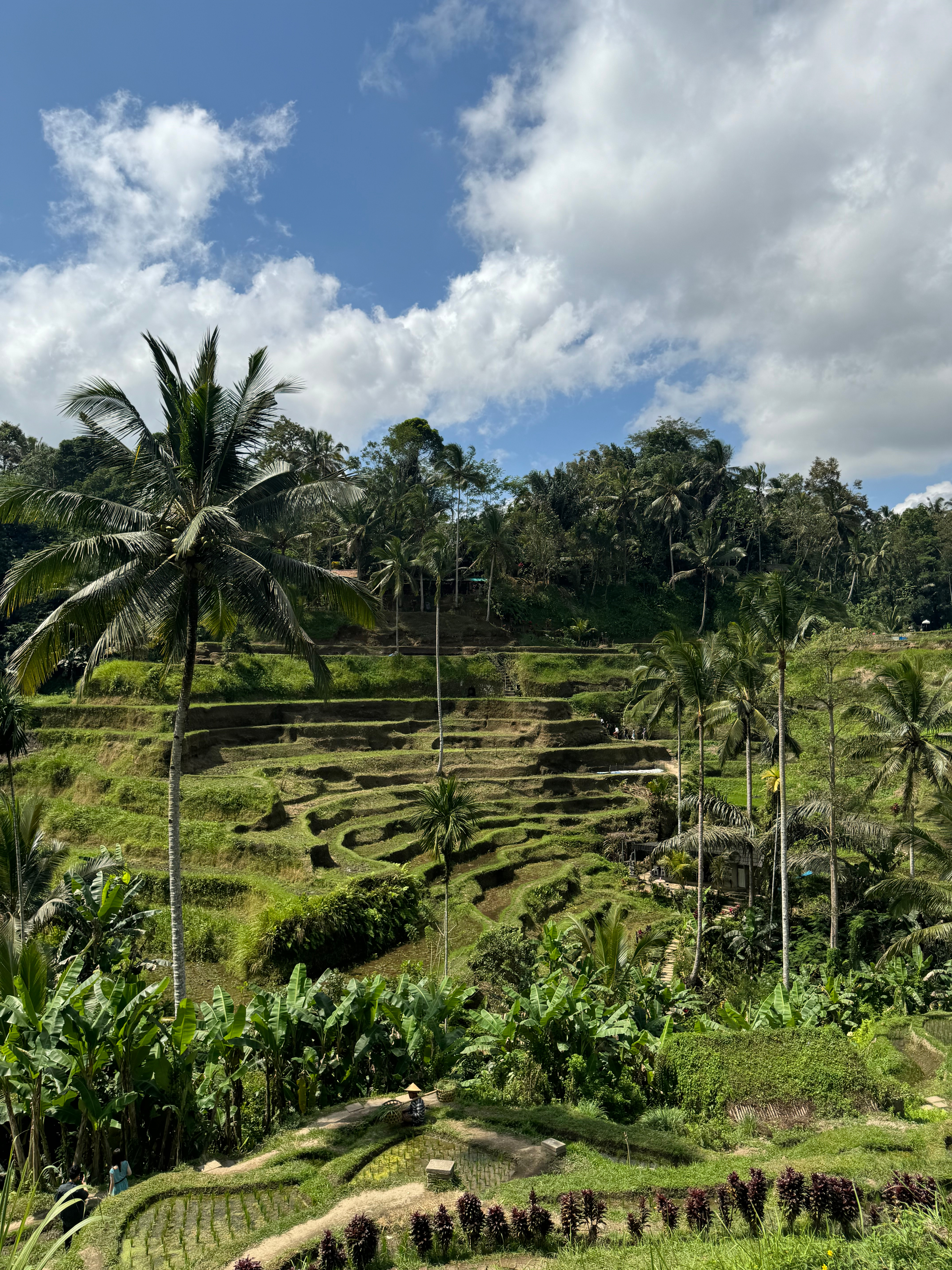
Additionally, teachers and school administrators expressed their gratitude for the structured lessons and educational materials provided. They acknowledged the positive behavioural changes among students and expressed their willingness to continue reinforcing these lessons in their schools. Perhaps one of the most rewarding aspects of the project was witnessing students take initiative by sharing their newfound knowledge with their peers and families, effectively amplifying the project’s impact beyond the classroom.
Beyond direct classroom learning, I also sought to engage parents and caregivers through community outreach efforts. I facilitated discussions with parents about the importance of health education and encouraged them to reinforce positive habits at home. These interactions highlighted the broader societal implications of my work, as empowering families with health knowledge contributes to healthier communities overall.
Impact on Me and Achieving SMART Goals: The LiA project had a profound and lasting effect on my personal and professional development. At the outset, I established a series of SMART (Specific, Measurable, Achievable, Relevant, and Time-bound) goals to help guide my progress and ensure a structured approach to achieving meaningful outcomes. These goals included:
- Delivering a structured health education curriculum: I successfully designed and executed a four-week structured curriculum, covering essential health topics tailored to the students' needs. This goal was measured through pre- and post-lesson assessments, which indicated a significant improvement in students’ understanding of the topics covered.
- Enhancing student engagement and participation: By incorporating interactive teaching methods such as role-playing, storytelling, and group discussions, I ensured that students remained engaged. Their participation levels increased as the weeks progressed, as evidenced by their enthusiasm in class activities and their ability to recall key concepts.
- Developing sustainable resources for future educators: I created comprehensive lesson plans, worksheets, and visual materials that could be used by local teachers beyond my placement. These resources were compiled into a digital repository to ensure accessibility for future volunteers and educators.
- Building cross-cultural communication skills: Teaching in a different cultural and linguistic setting required me to adapt my communication style. Over time, I became more proficient in conveying complex health concepts in a simple and relatable manner, using visual demonstrations and translated materials where necessary.
- Encouraging behavioural changes among students: Perhaps the most gratifying outcome was seeing tangible improvements in students' health habits, including regular handwashing, better dietary choices, and increased awareness of disease prevention. These changes validated the effectiveness of my lessons and the overall impact of the project.
By achieving these goals, I gained a greater sense of confidence in my ability to lead, educate, and adapt to new challenges, all of which will be invaluable in my future career.
Leadership Skills Gained and Demonstrated
Throughout the LiA project, I had numerous opportunities to develop and apply key leadership skills. Some of the most significant skills I cultivated include:
- Cultural Intelligence and Empathy: Understanding and respecting the cultural context of my students was essential to delivering effective lessons. By immersing myself in Balinese customs and traditions, I was able to build stronger connections with students and educators.
- Adaptability and Problem-Solving: Teaching in an unfamiliar environment presented challenges, such as language barriers and differences in educational norms. I had to adapt my teaching style quickly and develop innovative strategies to keep students engaged.
- Decision-Making and Initiative: I frequently had to make on-the-spot decisions, whether adjusting lesson plans to suit students’ comprehension levels or finding alternative ways to communicate health messages. Taking initiative and thinking on my feet became second nature.
- Relationship Building and Teamwork: Working alongside fellow volunteers and local teachers required effective collaboration and communication. I learned the importance of fostering positive relationships to achieve common goals.
Cultural Experiences and Lessons Learned
Beyond my work in the classroom, my cultural immersion in Bali provided invaluable insights. Participating in traditional ceremonies, such as the holy water cleansing at Tirta Empul, deepened my appreciation for the spiritual significance of purification rituals. Observing daily canang sari offerings reinforced the importance of gratitude and mindfulness in Balinese culture.
Additionally, I witnessed the strong sense of community that defines Balinese society. Unlike in Western cultures, where individualism is often prioritised, Bali places a strong emphasis on collective well-being. This lesson in interconnectedness and community support has left a lasting impression on me.
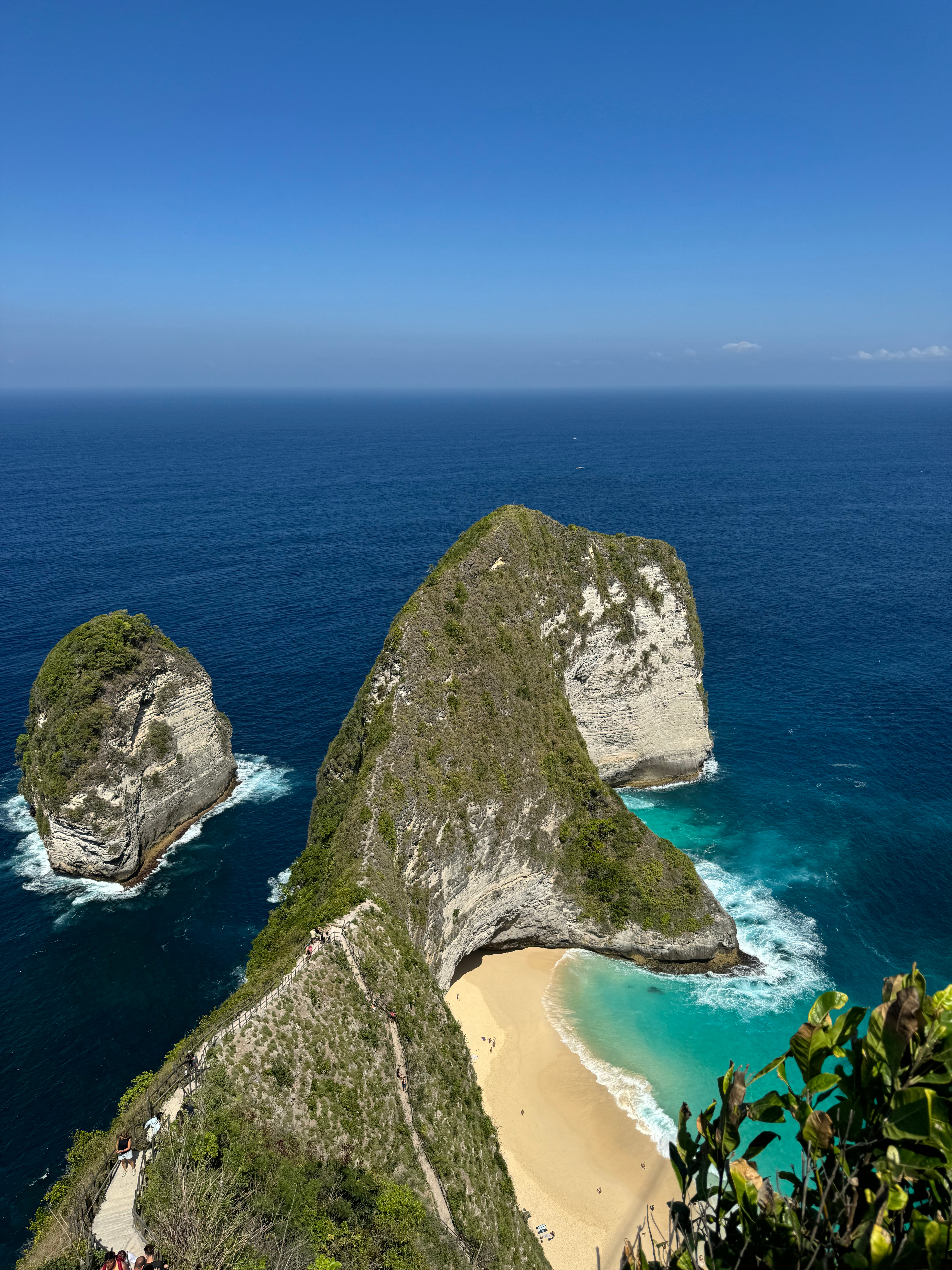
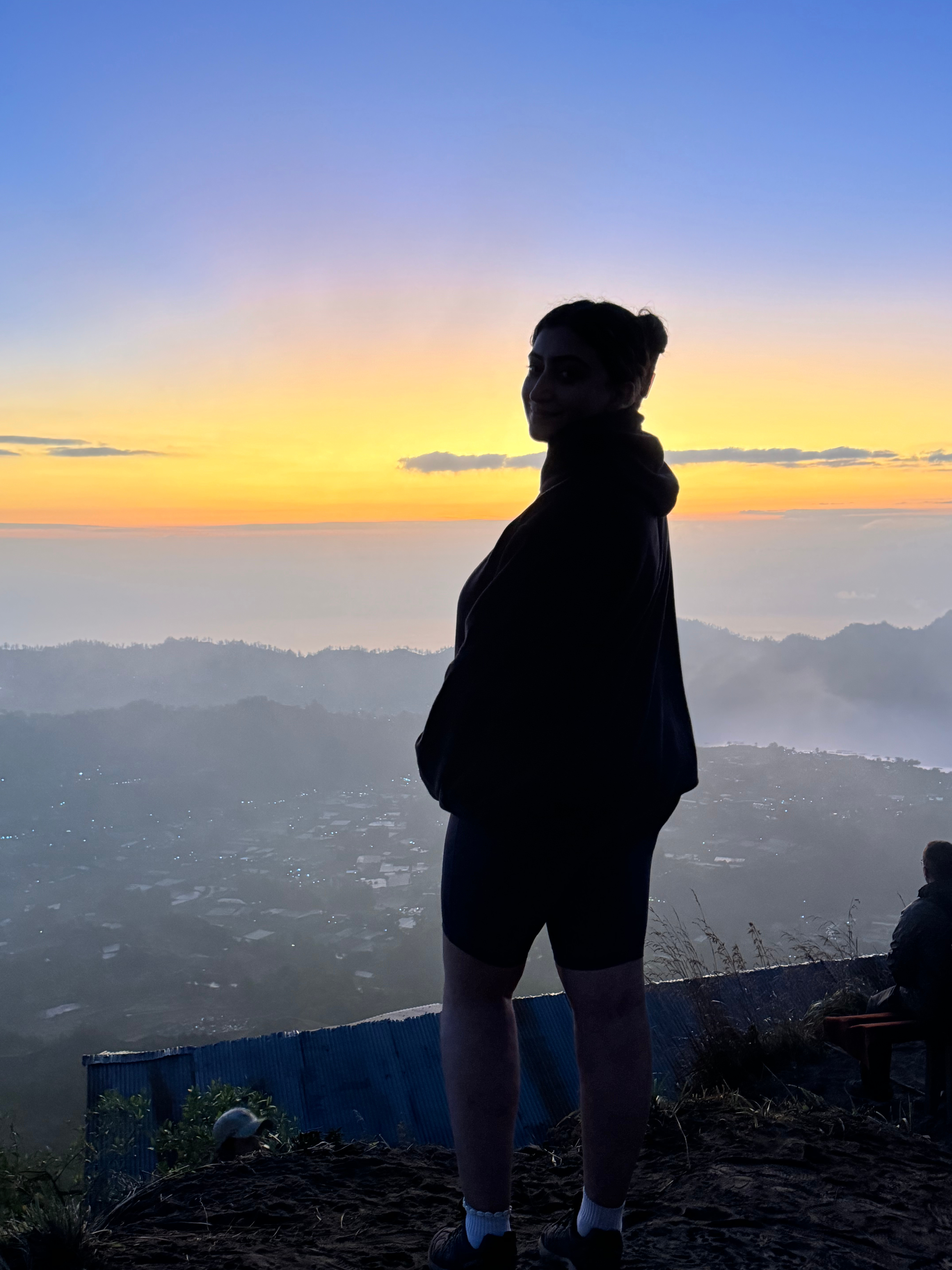
Future Career and Educational Plans
My time in Bali has significantly influenced my future career aspirations. Initially, I was focused solely on clinical nursing, but this experience has broadened my perspective to include public health education and community outreach. I now plan to pursue opportunities that combine healthcare with education, ensuring that preventative health measures reach underserved populations.
I also hope to return to Bali or other underserved regions to continue similar work, potentially as part of an international health education initiative. Additionally, I am considering further studies in global health and health policy, with the goal of influencing systemic improvements in health education worldwide.
Reflecting on my Leadership in Action journey, I am grateful for the opportunity to contribute to a cause that aligns with my passion for healthcare and education. The experiences, challenges, and lessons I encountered have shaped me into a more adaptable, empathetic, and driven individual. I am excited to carry forward these lessons as I continue working toward creating meaningful change in global health education.
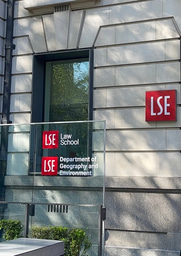
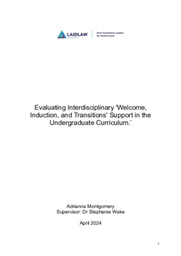

Please sign in
If you are a registered user on Laidlaw Scholars Network, please sign in